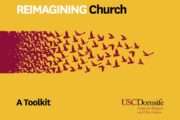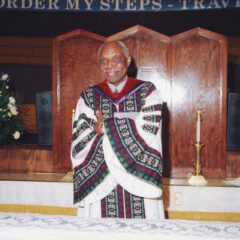The Bethel School of Supernatural Ministry is causing rifts in Redding, California, Buzzfeed News reports. The school is at the center of INC — Independent Network Charismatic — Christianity, a growing movement documented by CRCC’s Brad Chisterson and Richard Flory in their book, The Rise of Network Christianity: How Independent Leaders are Changing the Religious Landscape. INC Christianity has grown rapidly in recent years, appealing particularly to young people, through loosely networked apostles who preach that Christians are able to prophesy and perform miracles today. Students come from around the world to learn how to do so at the Bethel School of Supernatural Ministry in Redding. Buzzfeed News captures the tensions the school has brought to the city, with anger at its theology, influence in city politics and students practicing healings in public.
The article quotes Brad Christerson to understand the large context of the story, and how INC Christianity is unique:
Behind Bethel’s rise is the enormous talent and ambition of the church’s magnetizing leaders, Bill Johnson and Kris Vallotton, who cofounded BSSM in 1998. Depending on who you ask, Vallotton and Johnson are geniuses, false prophets, or both. What’s undeniable is that with Vallotton at his side, Johnson, a fifth-generation pastor, has transformed a small, unremarkable local church into what Christianity Today called “a hub of a global revival movement.”
Johnson has become one of the most high-profile apostles in a loosely connected and ever-multiplying group known as Independent Network Charismatics, or INC Christians, said Brad Christerson, a professor of sociology at Biola University and coauthor of The Rise of Network Christianity. Christerson calls INC Christianity, which is also known as New Apostolic Christianity, the country’s fastest-growing religious movement — and Bethel, he says, “is at the center.”
INC churches have no formal structure or governing body, something that allows them to grow and take risks in a way that many other churches, bound by formal rules and structures, can’t. But that also means that INC churches have little accountability for their finances or their beliefs. Apostles often experiment wildly, and they encourage their members to do the same.
INC Christians don’t care about planting churches, or even growing their congregations as large as possible, the way Joel Osteen did with his 52,000-person megachurch, says Christerson. Their sole mandate is to spread their apostles’ beliefs — in Bethel’s case, sharing testimonies and experiences of the supernatural by any means necessary.
Christerson also speaks about the role INC Christians hope to play in Redding and the wider world:
Brady’s fears about a growing Bethel takeover in Redding are not unfounded. At the very theological roots of Bethel and other churches like it is the “seven mountains mandate,” a belief that Christ will only return to Earth when true believers bring God into seven spheres: religion, family, education, government, media, arts, and business.
Most INC churches organize themselves around the seven mountains mandate, says Christerson, the author of The Rise of Network Christianity. But thanks to Redding, Bethel offers a unique test case.
“They’re so big, and Redding is so small, that they can actually do it,” Christerson says.
Click here to read the full article.
Photo from a Bethel School of Supernatural Ministry video.



